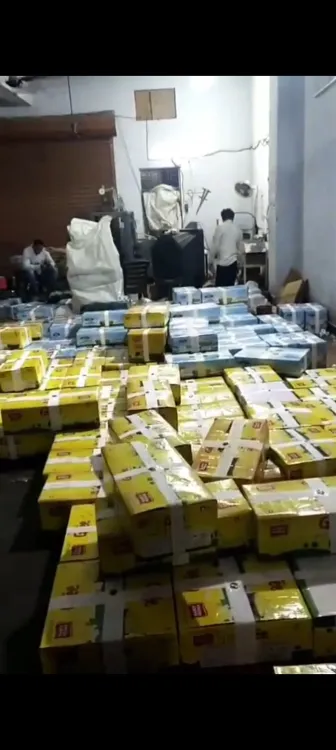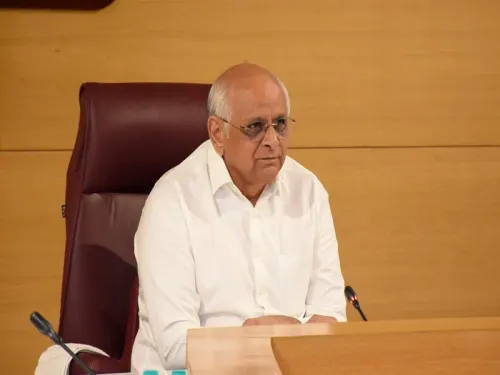Did Delhi Police Uncover an Illegal Adulterated Desi Ghee Factory in Bawana?

Synopsis
Key Takeaways
- Delhi Police raided an illegal desi ghee factory in Bawana.
- Over 3,700 liters of counterfeit ghee were seized.
- Two suspects were arrested during the operation.
- The factory had been operating for nearly a year.
- Authorities are enforcing strict regulations against food adulteration.
New Delhi, Oct 31 (NationPress) In a significant move against food fraud, the Eastern Range-I of the Delhi Police Crime Branch has dismantled an illicit operation producing adulterated ‘desi ghee’ in the Bawana Industrial area, as reported by officials on Friday.
The operation carried out on Thursday resulted in the arrest of two individuals, with authorities seizing over 3,700 litres of counterfeit desi ghee, alongside raw materials, machinery, and fraudulent packaging materials from the site.
According to police reports, a team led by Inspector Lichhman, supported by other personnel, acted on credible intelligence to conduct the raid on October 29, under the oversight of ACP Sunil Srivastava.
The factory was discovered to be operating under various brand names and was producing fake ghee using refined oils and non-dairy ingredients.
Upon arrival at the site, law enforcement found the illegal production in progress. Two suspects—identified as Satender (44), from Sonipat, Haryana, and Parveen (29), from Rohtak—were apprehended while allegedly managing the machinery and packaging operations.
A thorough search yielded approximately 2,500 litres of packaged adulterated ghee and around 1,200 litres in its raw form.
Authorities also confiscated large quantities of refined oil, steel mixing containers, heating equipment, electronic weighing devices, tetra-pack sealing machines, plastic jars and pouches ranging from 100 ml to 5 litres, along with rolls of counterfeit labels and wrappers.
According to police, this illegal operation had been running for nearly a year. Satender, the alleged mastermind, previously sold oil cake in Sonipat before transitioning to this illegal activity. Parveen, a former auto-rickshaw driver, joined him to help manage the factory and adulterate the products.
A case has been filed at the Crime Branch under Sections 274/275/318(2)/61(2)/3(5) of the Bharatiya Nyaya Sanhita (BNS) for the manufacturing and distribution of hazardous adulterated food products and for utilizing fake packaging.
“This case involves the production and distribution of adulterated food items that pose risks to public health, the use of false labelling, and breaches of food safety regulations,” stated DCP Crime Branch Vikram Singh.









